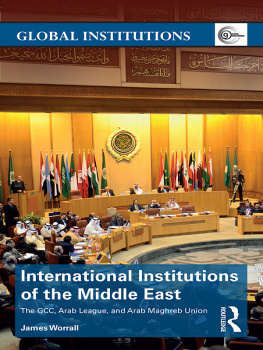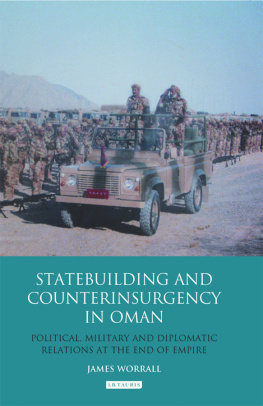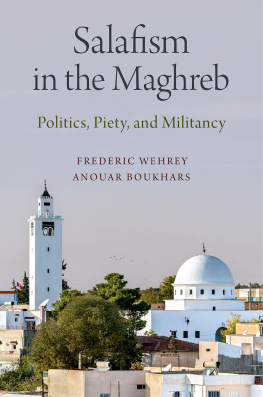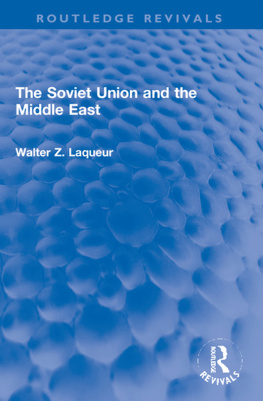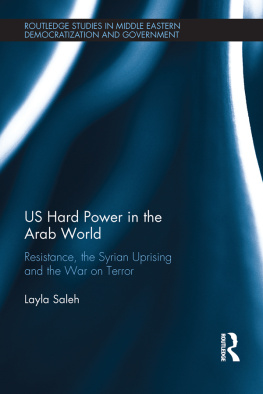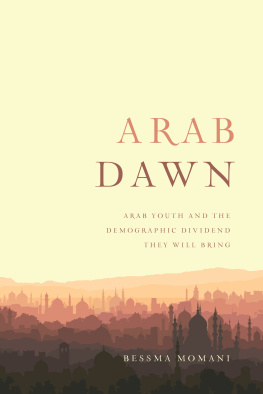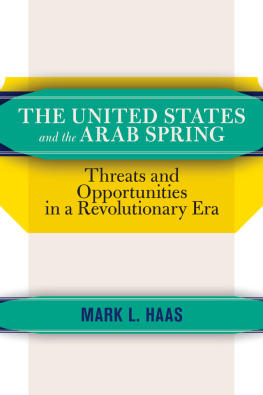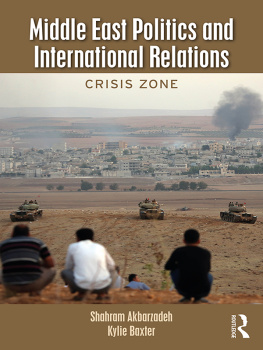James Worrall has produced a classic here! With so much international attention on the MENA region and the crisis of state and society at its Arab core, it is surprising that no substantial and systematic analysis of the main structures of the regional system its key institutions has been available in one volume. This substantial study addresses that shortcoming, I believe, bringing together the conceptual tools for deciphering MENA regionalization as well as the rich empirical data for understanding it. Dr Worrall shows that these institutions matter and do have a role to play in shaping the regions fortunes. I will certainly want a copy of this book by my side.
Anoush Ehteshami, Durham University, UK
In this clear, accessible and yet exhaustive volume the author does an excellent job of highlighting the genesis, evolution and principal features of the major international organizations in the Arab speaking world. He does so in a sympathetic and yet probing manner advancing the literature on regionalism and regionalization. This book is a must read for all students of international relations of the Middle East and will prove very useful for everyone interested in international relations more widely.
Matteo Legrenzi, Associate Professor, Ca Foscari University of Venice, President of the Italian Association for Middle Eastern Studies (SeSaMO) 20132016
Worrall has produced a rigorous and scholarly work that adds to our knowledge and understanding of the three institutions in focus - the Gulf Cooperation Council, the Arab League and the Arab Maghreb Union. More than that, he offers a valuable comparative examination of some of the major institutions at the heart of the contemporary Arab world. A timely and welcome study.
Rory Miller, Professor of Government, Georgetown University, Qatar
This important and timely volume will provide immense practical value to scholars and policymakers as a tool to contextualize and analyze rapidly-changing regional developments across the Middle East and North Africa in the aftermath of the Arab Spring.
Kristian Coates Ulrichsen, Fellow for the Middle East, Rice University's Baker Institute, USA
International Institutions of the Middle East
This volume is a key text for understanding the major regional international organizations of the Middle East. Analyzing the Arab League, the Gulf Cooperation Council, and the Arab Maghreb Union in a concise and accessible format, it explores their successes and failures across their full range of activities (economic, social, and political), while contextualizing the reasons why many consider that these organizations have stalled.
The book:
assesses the reasons why international organizations in the Middle East are underdeveloped relative to those organizations of neighboring regions;
explores their history, evolution, and structure, while considering the successes and failures of each international organization;
analyzes the reasons for the specific difficulties faced by each organization through the context of intra-regional relations;
develops a new framework for analyzing the forces that have shaped these bodies, and challenges the existing narrative that largely ignores the achievements and prospects of the organizations; and
considers the likely impact of the Arab Spring upon the future development of these frequently overlooked regional international organizations.
This book will be of great interest to students and scholars of Middle East studies, international organizations and global governance, as well as diplomats and policymakers.
James Worrall is Associate Professor in International Relations and Middle East Studies, in the School of Politics and International Studies (POLIS) at the University of Leeds, UK.
Global Institutions
Edited by Thomas G. Weiss
The CUNY Graduate Center, New York, USA
and Rorden Wilkinson
University of Sussex, Brighton, UK
About the series
The Global Institutions Series provides cutting-edge books about many aspects of what we know as global governance. It emerges fromour shared frustrations with the state of available knowledgeelectronic and print-wise, for research and teachingin the area.The series is designed as a resource for those interested in exploring issues of international organization and global governance. And since the first volumes appeared in 2005, we have taken significant strides toward filling conceptual gaps.
The series consists of three related streams distinguished by their blue, red, and green covers. The blue volumes, comprising the majority of the books in the series, provide user-friendly and short (usually no more than 50,000 words) but authoritative guides to major global and regional organizations, as well as key issues in the global governance of security, the environment, human rights, poverty, and humanitarian action among others. The books with red covers are designed to present original research and serve as extended and more specialized treatments of issues pertinent for advancing understanding about global governance. And the volumes with green coversthe most recent departure in the seriesare comprehensive and accessible accounts of the major theoretical approaches to global governance and international organization.
The books in each of the streams are written by experts in the field, ranging from the most senior and respected authors to first-rate scholars at the beginning of their careers. In combination, the three components of the seriesblue, red, and greenserve as key resources for faculty, students, and practitioners alike. The works in the blue and green streams have value as core and complementary readings in courses on, among other things, international organization, global governance, international law, international relations, and international political economy; the red volumes allow further reflection and investigation in these and related areas.
The books in the series also provide a segue to the foundation volume that offers the most comprehensive textbook treatment available dealing with all the major issues, approaches, institutions, and actors in contemporary global governanceour edited work International Organization and Global Governance (2014)a volume to which many of the authors in the series have contributed essays.
Understanding global governancepast, present, and futureis far from a finished journey. The books in this series nonetheless represent significant steps toward a better way of conceiving contemporary problems and issues as well as, hopefully, doing something to improve world order. We value the feedback from our readers and their role in helping shape the on-going development of the series.
A complete list of titles can be viewed online here: https://www.routledge.com/Global-Institutions/book-series/GI
The most recent titles in the series are:
The Politics of Expertise in International Organizations (2017)
edited by Annabelle Littoz-Monnet
Obstacles of Peacebuilding (2017)
by Graciana del Castillo
UN Peacekeeping Doctrine in a New Era (2017)
edited by Cedric de Coning, Chiyuki Aoi, and John Karlsrud
Global Environmental Institutions (2nd edition, 2017)
by Elizabeth R. DeSombre
Global Governance and Transnationalizing Capitalist Hegemony (2017)
by Ian Taylor

